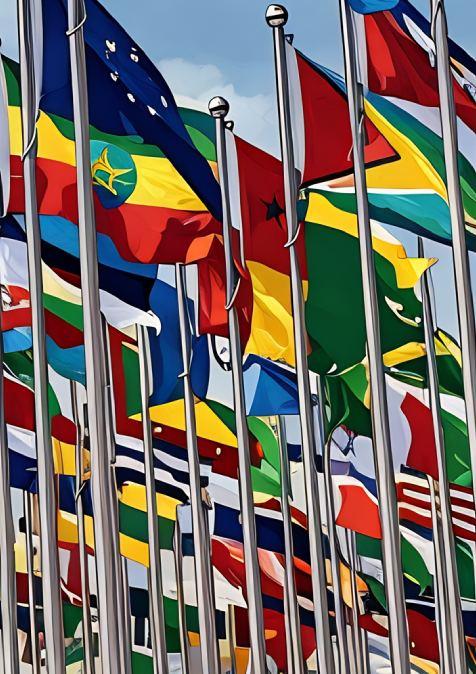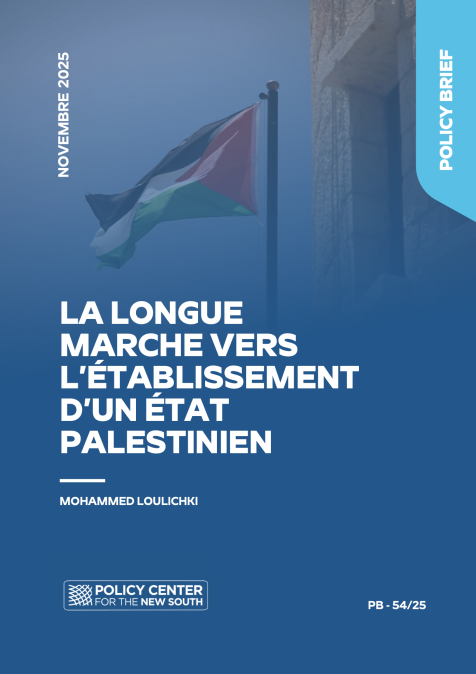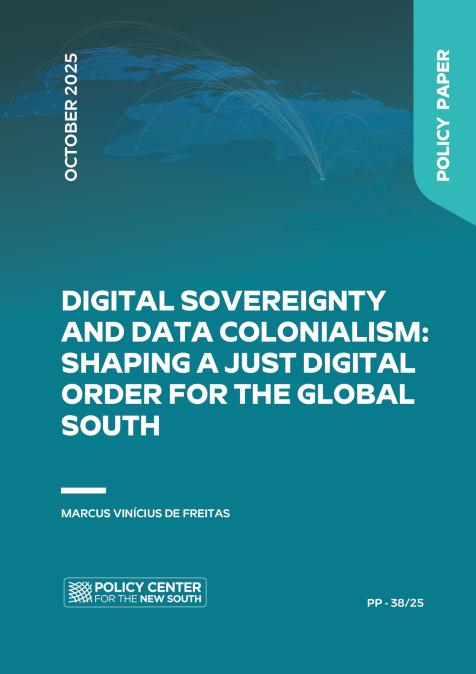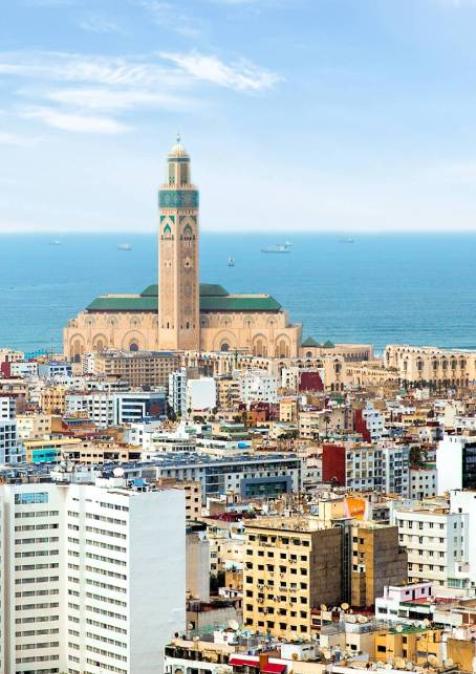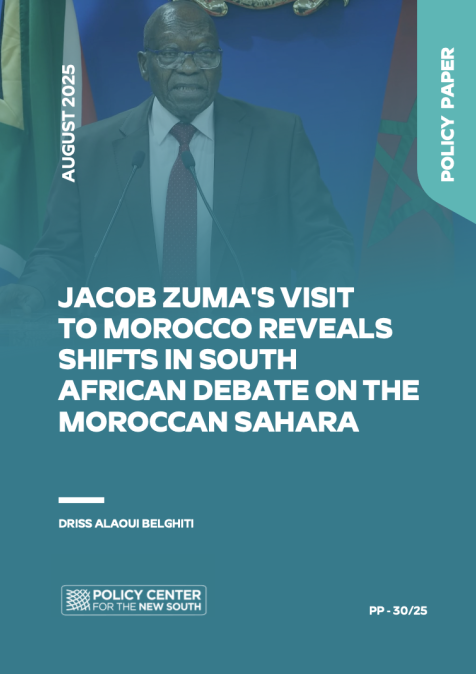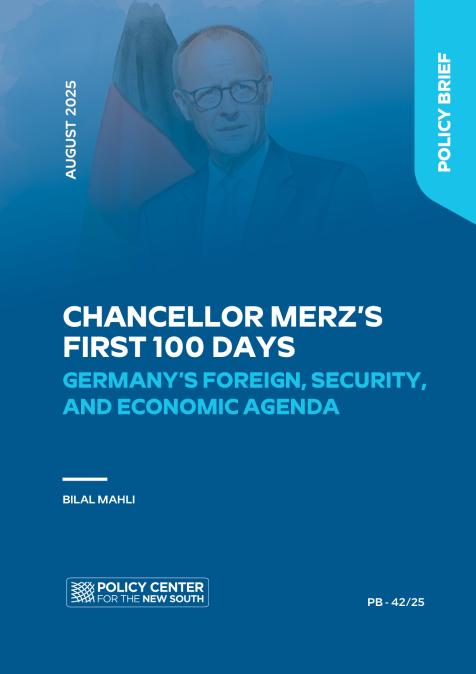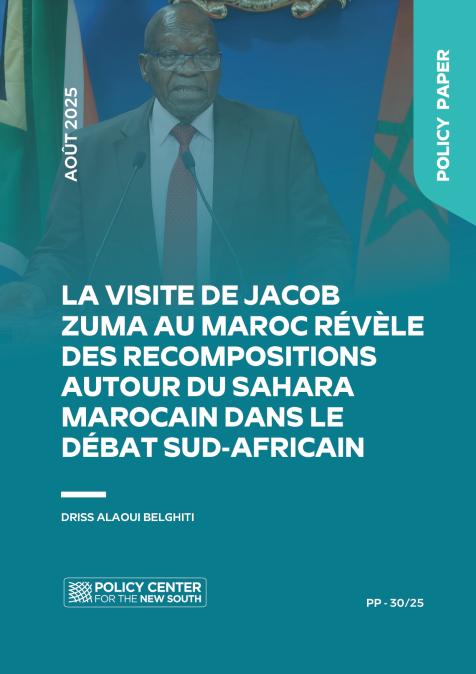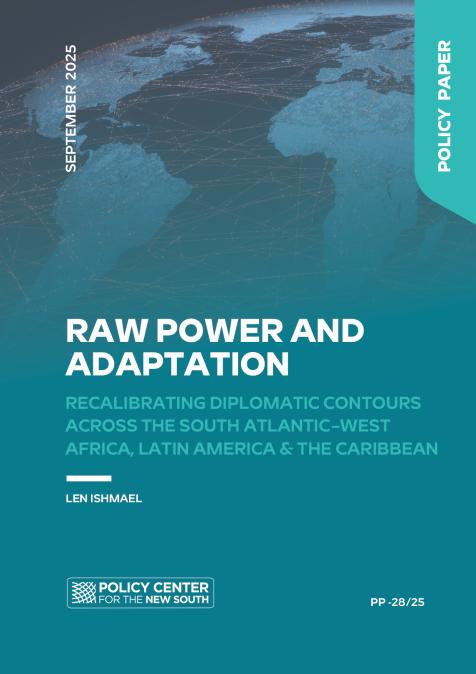Publications /
Opinion
The author of this opinion, Florencio Venté, is a 2024 alumnus of the Atlantic Dialogues Emerging Leaders Program.
Culture, diasporas, and diplomacy are strongly connected when it comes to promoting exchanges and fostering social inclusion, economic development, and the building of transcontinental bridges. In this blog post, I explore the nexus of these three areas and how they can serve as pathways to achieve cohesion across the Atlantic and beyond. Culture is crucial in promoting heritage, sharing history, and preserving collective memory. It is important to explore how culture can function as a connector for integration and peacebuilding, addressing the diversity of nations, what makes them culturally unique, and the shared cultural similarities within regions.
During the Atlantic Dialogues panel, Morocco was highlighted as an example of how culture can be seen as an asset. Morocco's multicultural blend of African, Arab, sub-Saharan, and Mediterranean influences defines its identity. Similarly, Mexico, with its mix of Spanish and Indigenous roots, showcases how members of diaspora communities can build bridges in host countries and beyond. For example, Mexican cuisine, such as tacos, music such as Mariachis, and national symbols such as tequila have become recognized globally.
Diasporas as Cultural Ambassadors for Foreign Diplomacy
The impact and importance of diasporas in spreading their culture among nations cannot be overstated. Diaspora members play significant roles as active ambassadors of their culture and expressions of their nations. Through support networks, culinary and cultural business ventures, diaspora members are active participants in soft power and smart power, building bridges that bring people and cultures together.
While narratives about people on the move often raise concerns about multiculturalism, it is essential to view it as an opportunity and an investment for development and for cultivating a sense of belonging. Diaspora members are key stakeholders in promoting positive narratives through tangible actions, fostering diversity and creating synergies between the cultures of their countries of origin and residence.
Diaspora members also bring recognition to their countries of origin and residence through sports, research, business leadership, acting, and various other fields. They offer residence communities the opportunity to experience the culture of another nation without the need to travel across continents. This cultural value of diasporas should be more recognized.
Cultural and diaspora diplomacy actors and leaders are engaged through different sectors and creative industries. These industries promote a vision of the world and contribute to economic growth. According to UNESCO, the creative economy will grow significantly in the coming years.
Investing and giving importance to diaspora leaders and actors expands diplomacy beyond the state, making individuals, grassroots cultural movements, civil society, NGOs, businesses, and other stakeholders into cultural ambassadors for their identities and heritage, fostering mutual understanding and enabling connections beyond borders.
Call to Action and Recommendations
- Budgets for culture and engagements of diasporas in many states are undercapitalized, and there is a need to increase the allocation of resources, which is viewed as an investment. There is a need to see diasporas as having value beyond remittances, and to expand efforts to recognize their contributions to transnational commerce, communications, innovation, and the creative economy. For instance, according to the Inter-American Development Bank (IDB), the creative economy generates $124 billion in revenues, or 2.2% of the GDP of Latin America and the Caribbean, and employs 1.9 million people. Embracing the talent and skills of diasporas with dual cultural understanding is essential.
- Building a sense of togetherness and shared understanding is crucial for diplomacy. In parallel, highlighting the importance of maintaining cultural identity, heritage, and its expressions through literature, cinema, music, culinary, arts, and other cultural forms, can reinforce the impact of bilateral, multilateral, and transatlantic relationships.
- Promote cross-cultural leadership, the organization of diaspora networks, and the mentoring of diaspora emerging leaders in different social, cultural, and economic sectors that embrace the value of cultivating effort in promoting the culture of the origin country, and how it integrates with that of host countries.
Cultural and Diaspora Diplomacy in Action
As a Colombian, I have seen an extension in the way the Colombian diaspora promotes the creative economy and culture to create connections between Colombia and diaspora host countries. One initiative that combines civic and entrepreneurial efforts, bringing elements of culture and entertainment as a diplomatic tool, is Black Empire. This network brings together business initiatives involving people of African descent and promotes international cooperation between Colombia and the United States. Its director, Jefferson Tenorio, mentioned how the entertainment industry is a key area for promoting prosperity and entrepreneurship. This industry includes culture and arts, among other expressions, with music playing an essential role in capitalizing on this industry in Colombia. The influence of the internationalization of genres with significant cultural roots, such as Champeta from Colombia’s Atlantic coast, and its evolution with the influence of other genres, such as Afrobeat, is particularly notable.
In Tenorio’s words, the entertainment economy involves music, art, culture, and other related elements, including traditional clothing, accessories, jewelry, traditional drinks such as ‘Viche’, and traditional musical instruments such as the ‘Marimba’. Black Empire, as a network, creates a platform and space in which all these elements can come together through different events across the two nations. This has had a significant impact for people of African descent in Colombia, connecting them with their peers in the U.S. and bringing diversity to these communities and promoting interest in music, folklore, and the creation of international linkages. This effort also worked on the importance of public-private partnerships, collaborating with local governments, foreign ministers, universities, social entrepreneurs, and NGOs.
Another Initiative from Civil society is ‘Danaker’, the diaspora of women from Kyrgyzstan. According to founder Aitolgon Boronbaeva, the diaspora has three main values, one of which is preserving and promoting cultural heritage. Kyrgyz women believe that being cultural ambassadors is not just about celebrating their own traditions, but also about connecting with others and enriching the global community.
Through their many events and activities, they celebrate elements of their unique culture and share it abroad. For example, during the First European Forum of Women from Kyrgyzstan, they proudly featured traditional dance, komuz (a traditional musical instrument), and Kyrgyz music in the program. These cultural elements were not only a way for their compatriots to feel at home, but also served as an introduction to their rich cultural heritage for others, including representatives from local and international organizations.
Initiatives to Follow
The Global Diaspora Policy Alliance: In 2024, the International Conference on the Future Agenda of Action for Global Diaspora Engagement took place in Cabo Verde. The conference brought together supporters of the Dublin Declaration and, during the event, the Global Diaspora Policy Alliance (GDPA) was launched, seen as an initiative to shape the future of global diaspora engagement. In my opinion, in the next few years, we will likely see more progress in how governments and other stakeholders view diasporas and culture as agents of soft power and diplomacy.
Global Diaspora Week: The Global Diaspora Week is an annual event organized by the Global Diaspora Confederation that highlights the vital role of diaspora communities in improving lives in their home countries through remittances, investments, and philanthropy. The 4th Global Diaspora Week will focus on strengthening the ecosystem diaspora organizations need to localize development and humanitarian efforts. By advancing an inclusive ecosystem, GDWeek will empower diaspora organizations to innovate, maximize impact, and better serve their communities.
Other resources
International Organization for Migration. (n.d.). Technical Working Group Background Paper on Cultural Capital. Retrieved from https://www.iom.int/sites/g/files/tmzbdl486/files/inline-files/technical-working-group-background-paper-on-cultural-capital.pdf
Diaspora Diplomacy: A Gateway to Influence, Power, and Reputation By Dr Martin Russell and Loksan Harley Retrieved fromhttps://static1.squarespace.com/static/6290afa602ed11406768b59e/t/6642305cf882a44b4573bc5d/1715613789496/Diaspora+Diplomacy+Article.pdf
Ten Years Promoting Culture and Creativity: The IDB's Commitment to the Cultural and Creative Industries. Inter-American Development Bank. Retrieved from https://publications.iadb.org/es/publications/english/viewer/Ten-Years-Promoting-Culture-and-Creativity-The-IDBs-Commitment-to-the-Cultural-and-Creative-Industries.pdf

